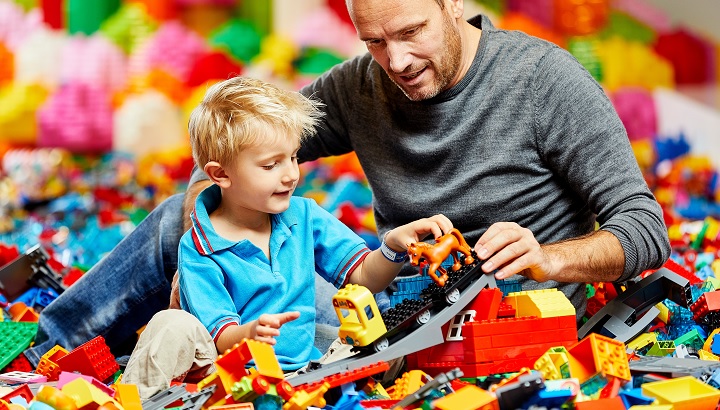While many businesses have yet to regain the trust of stakeholders after a year of uncertainty, others, like toy giant Lego, have risen to the occasion amid increasing pressures and challenges. “Lego essentially defined a category decades ago by being highly distinctive and meeting customers’ needs in a compelling way,” said retail influencer and author Steven Dennis. For the third consecutive year, the Danish brand has topped a list of 100 of the world’s most reputable companies, fo
es, followed by Swiss luxury watch company Rolex and Italian luxury sports car company Ferrari.
The Reputation Institute surveyed 68,577 people in 15 countries for its annual Global RepTrak study, which scores companies on seven dimensions: products & services, innovation, workplace, governance, citizenship, leadership and performance.
Top companies maintained their good reputations by meeting the challenges brought on by the Covid-19 pandemic, continued investment on staff, innovation and focus on quality, it found.
According to Dennis, Lego illustrates some of the core principles he mentioned in his new book Remarkable Retail: How to Win & Keep Customers in the Age of Digital Disruption.
“Lego is inherently engaging, and through a constant stream of product innovation and by opening up immersive physical stores they’ve elevated the brand experience to a story that consumers want to be part of, and share with others — to quite literally, remark upon,” he said.
Lego’s sustainability efforts
The Danish toymaker has been steadfast in its environmental sustainability efforts in the past few years and even started producing pieces made from plant-based polyethylene, the first of many steps toward achieving its mission of making all bricks sustainable by 2030.
Lego also came within seven percentage points of reaching its goal of recycling 100 per cent of its operational waste by 2025. The company is now ahead of schedule in meeting its target of generating as much renewable energy as its business consumes — doing so by means of investments in offshore wind farms in Germany and the United Kingdom.
In September last year, the retailer announced it will invest up to US$400 million over three years to accelerate its social and sustainability initiatives.
The group also said its manufacturing operations will be carbon neutral by 2022. To achieve this, Lego will install additional solar panels on all its factories and onsite capacity will be supplemented with the procurement of renewable energy. The company also plans to improve waste handling and reduction in water consumption will further reduce its operational impact on the environment.
“No waste will be diverted to landfill by 2025 and water use will drop by 10 per cent by 2022 or 2023,” Lego stated.
The Reputation Institute stated that in the year where a raging global pandemic, a financial crisis, protests against systemic racism and multiple continents on fire — all at the same time — happened, there were many ways that companies could go wrong.
“Instead, the top 100 emerged with stronger-than-ever reputations. Despite the many challenges of 2020, the increase in corporate reputation worldwide indicates that not only did this year’s winners respond to these simultaneous crises, but they also communicated their responses to their stakeholders determinedly,” the Reputation Institute said.
According to the reputation data and insights company, the Lego Group, which achieved an 80.4 score, maintained its position by having a strong reputation across the globe’s 15 largest economies.
To break into the top 10, businesses need to continuously measure and manage their reputation in the 15 largest markets. An ‘average’ score in just one market is enough to block a company from the top 10, the company added.
“There were an impressive 18 new entrants to the top 100 who shook things up — one of the reasons many companies experienced declines in their 2021 ranking,” it said.
Google and Apple, which came first and second respectively when the survey began in 2011, were notably absent from this year’s top 10. Google has been in the top 10 every year until 2018, while Apple has been ranked five times in 10 years.
Google dropped to the 15th spot while Apple is now in number 46.
Lego’s chief executive officer Niels B. Christiansen said he is very proud of everyone in the company who contributed to them being again recognised as the most reputable company.
“During a difficult year we prioritised doing what’s right and lived our values,” Christiansen said. “We supported those in need and inspired children and families through play. Being able to have a positive impact on society motivates us every day.”
The toy company announced last month that the combination of traditional plastic toy bricks and tying-up with games company Nintendo, have boosted its sales and profits. Consumer sales climbed by more than a fifth in 2019, while Lego’s operating profit rose by 19 per cent to almost 13 billion Danish kroner (US$ 2.06 billion).
Here is the list of the world’s Top 10 companies in order of global reputation:
1. The Lego Group (Denmark) 80.4
2. Rolex (Switzerland) 79.6
3. Ferrari (Italy) 78.8
4. The Bosch Group (Germany) 78.1
5. Harley-Davidson (USA) 78.1
6. Canon (Japan) 77.6
7. Adidas (Germany) 77.6
8. The Walt Disney Company (USA) 77.5
9. Microsoft (USA) 77.1
10. Sony (Japan) 77

